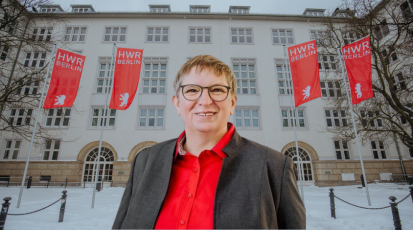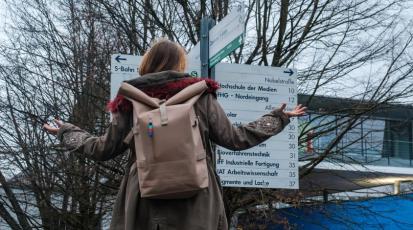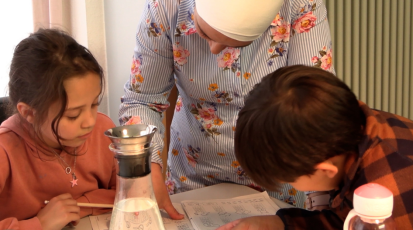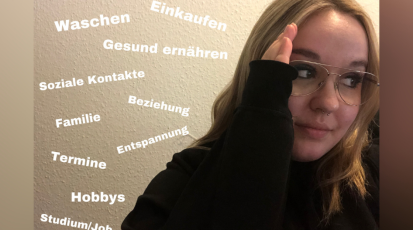"Our schools are shockingly under-resourced for how rich we are as a country, including in terms of digital equipment."
How to make education equitable?
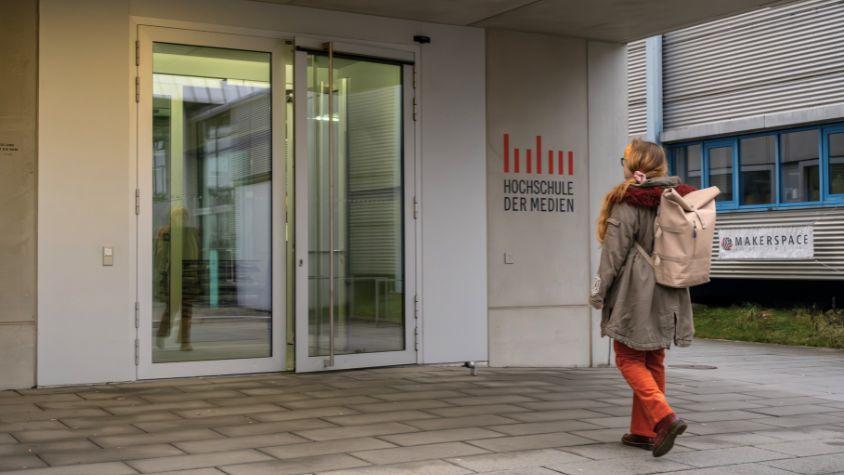
Article 3 of the German Constitution promises equality. However, there are significant inequalities in the education system. The difference in university enrollment rates between the children of academics and the children of non-academics is significant. The Higher Education Report 2020, published by the Stifterverband für die Deutsche Wissenschaft e. V. in collaboration with McKinsey & Company, Inc., reveals that only 27% of children from working-class families pursue higher education, while 79% of children from academic backgrounds do. The publishers of the report demand, "a student's social background should have no impact on his or her educational opportunities - at any point in their education."
Lack of money, knowledge, and sense of belonging
“Interests and affinities should be the decisive factors in the choice of educational path and subject”, explains the Stifterverband. Financing problems, a lack of information, mental barriers and minor skill deficits should not be reasons to not study, but according to our experts Cansu Dogan from Arbeiterkind.de, Prof. Dr. Monika Huesmann of the Berlin School of Economics and Law and Magdalena Polloczek of the Hans Böckler foundation, these are precisely the challenges that children of non-academics face. They may not have enough money, their families may not know how to help them with school, and they may feel out of place because of their background. Magdalena Polloczek states, “The German education system doesn't afford everyone with the desire the opportunity to pursue higher education.” Our experts and the Stifterverband have recommendations to address these issues.
Career guidance is key
The three experts agree that educators in school play a crucial role by not only imparting general knowledge, but also actively informing students about different educational paths and encouraging non-academic children to study. Cansu Dogan of Arbeiterkind.de, a non-profit organization that supports students with non-academic parents, emphasizes, "every student, regardless of which school they go to, should be shown all educational paths once during career guidance." For example, “you can go to university after an apprenticeship”, she added.
Magdalena Polloczek notes that surprisingly little is said about career orientation, especially in grammar schools (Gymnasien). The titles and descriptions of programs are often very specific and complicated, and yet you don't necessarily know what career you'll get with that degree. Many people would choose an apprenticeship because the path to a career is clearer. Completing an apprenticeship is also faster and you can start earning your own salary sooner. For many, an academic career is too uncertain and takes too long. Polloczek emphasizes yet again how important it is to provide information about the financial options available to students during their studies — and what happens after.
From financing options to everyday student life
Cansu Dogan explains that at Arbeiterkind.de, they mainly provide knowledge, including financing options. And this refers not only to BAföG, a government financial aid for students and pupils in Germany, but also to various scholarships. Dogan states, "We emphasize that anyone who wants to study and needs financial support should apply for a scholarship. A scholarship is not just for those who always get straight A's and do some volunteer work.” Nevertheless, she wants BAföG to cover all the costs for students who require it to finance their education. But the support of the association is not only needed for financing, but also for everyday things such as registering for exams, creating a timetable or even writing emails to professors. She explains that she missed out on this kind of informal exchange about university life because her parents didn't go to university.
Reforming the education system
Monika Huesmann, a former working-class child who is now a professor of human resource management at the Berlin School of Economics and Law, also calls for a reform of the education system. "It would make sense to abolish grammar schools (Gymnasien), secondary schools (Realschulen) and basic schools (Hauptschulen) in favor of comprehensive schools (Gesamtschulen).” The grammar school, which is the only type of school that properly prepares students for university, is very exclusionary. She explains that parents need a lot of prior knowledge to send their children to grammar schools, and they need to be able to afford it. Educational discussions with the family at home are still essential to succeed at grammar schools. Books and school trips at the grammar schools are also more expensive, highlights Huesmann.
The members of the Stifterverband für die Deutsche Wissenschaft see similar challenges in educational equity. They therefore express, "in order to increase equality of opportunity in Germany, it is particularly important to remove financial and mental barriers as well as information deficits: BAföG reform, role model programs, target-group-oriented information". But also, that the expansion of all-day elementary schooling, in which multi-professional teams replicate the cultural and educational offerings of academic's children, could reduce the existing achievement gap between academic's and non-academic's children in elementary school.
More recognition for apprenticeships
Huesmann asserts that a key component of the solution is to provide greater recognition to apprenticeships. This approach has several benefits: individuals who would be content with an apprenticeship would not feel compelled to pursue higher education, and increased recognition would likely result in greater satisfaction. If more people were satisfied with an apprenticeship, there would be more university places and corresponding funding for those who truly desire to study. "It should come down to 50 percent of both groups," Huesmann concludes.
The future of fair education
In the coalition agreement, the SPD, Greens, and FDP agreed to improve BAföG by reducing its dependence on parents. In their current draft legislation, they plan to regularly adjust the grants and provide a one-time assistance of 1,000 Euros to students in need. It will also be easier to extend or change your studies without losing BAföG. These changes are set to take effect next winter semester. The Bafög reform has faced significant criticism, especially regarding the proposed changes to the debt limit. Wolf Dermann from ArbeiterKind.de strongly criticized on Deutschlandfunk radio that the Bafög debt limit should no longer be limited to 10,000 euros. Additionally, the retroactive application of this rule for the last ten years is problematic. Dermann notes that, according to his information, 18 percent of students do not apply for Bafög due to concerns about debt. In addition to financial support, however, many other steps are necessary for fair education.
If you are affected by such problems yourself and would like to get help, take a look at these support services for first-gen students:
Non-profit organization for the advancement of working-class children.
Non-profit organization fostering co-determination and promoting research and academic study.
The organization of the Catholic Church for the promotion of gifted children.
Stiftung der deutschen Wirtschaft
Wide range of funding opportunities through scholarships and financial support.
Scholarship program for muslim students.
Deine Meinung interessiert uns
Yes
No





